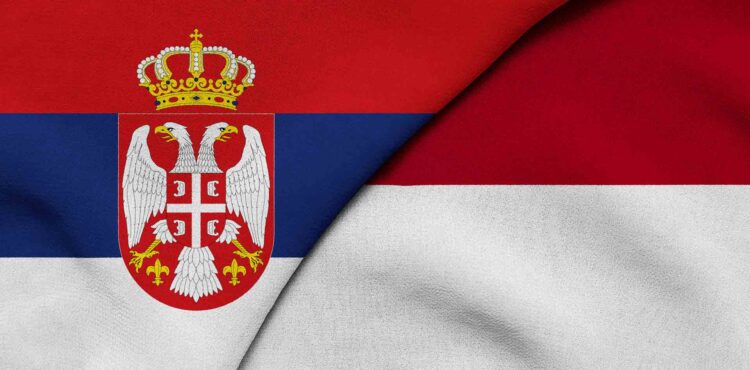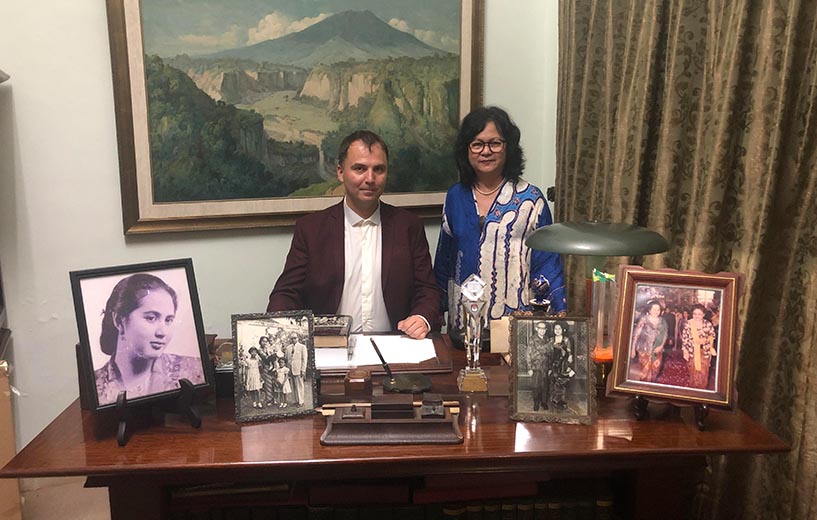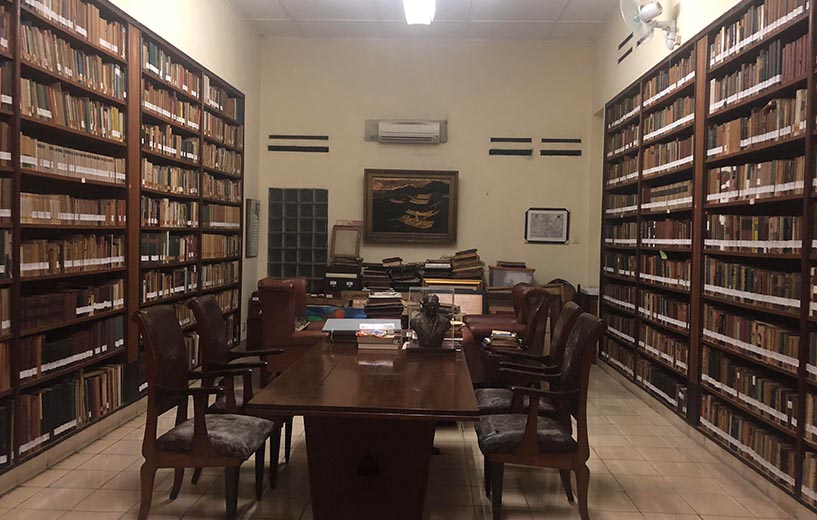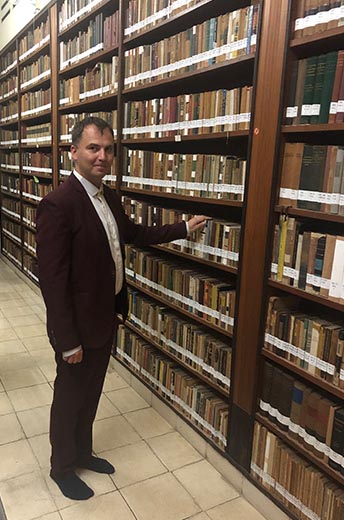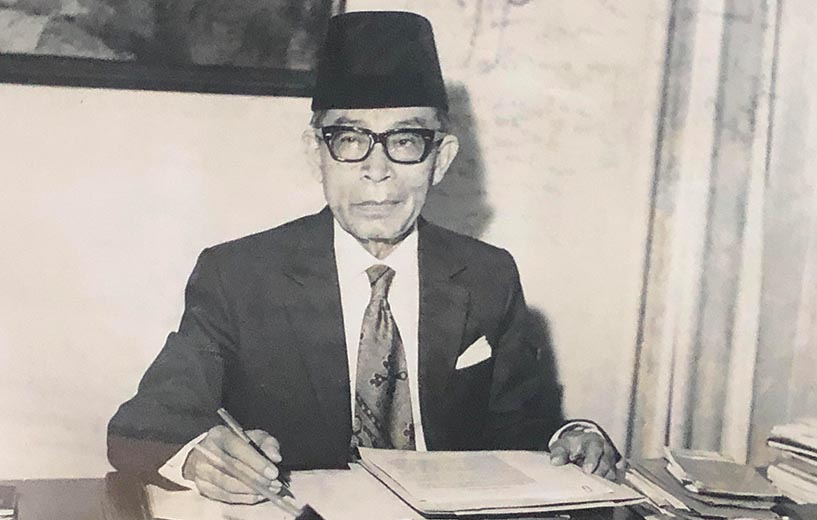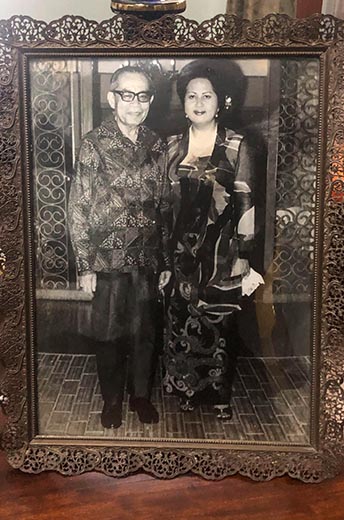He founded Indonesia and named his cats Hitler, Mussolini and Tito
“I cannot marry until Indonesia is an independent state,” said a young man of humble appearance but incredible inner strength, Mohammad Hatta. He was fully dedicated to his goal, his dream – an independent and free Indonesia, and did not want to waste his energy on anything else.
In a room full of obscurity and ambiguity, when it was uncertain whether the signers of the Proclamation of Indonesian Independence would keep their heads for long, there were about twenty individuals.
Only Sukarno and Hatta were bold enough to sign a valuable decision that established Indonesia as we know it today. Sukarno was writing down the text of the Proclamation as Hatta dictated it.
It was a turning point sometime between the Japanese occupation and the return of the Dutch to their colony, in August 1945. Indonesia, home to more than 300 different nations scattered across 18,000 islands, was guided by these two bold men towards unity and independence.
Luckily for his daughter, Halida, in whose company I am drinking Indonesian tea now, Hatta did not wait long after 10 a.m. on 17 August 1945, when the Proclamation of Indonesian Independence was read, to tackle his love life.
“Only three months later, he married a girl Sukarno had chosen for him. My mother was 20 years younger than my father. They never spent time together before, but may have come across each other at some gathering. However, she knew about him from the newspaper and the radio, and she liked him. When my aunt advised her not to marry an old man, my mother just said ‘I really like him!’” Halida recalls, remembering the beginnings of her parents’ great love.
No island is far enough
There are people whose energy, ideas and life can last for centuries and who become synonymous with the country they are from.
One of them is Muhammad Hatta, a dear old man whose face can be seen on Indonesia’s largest bill. However, outside Indonesia, the life and work of this great man are insufficiently known and in Serbia, one might say, absolutely unjustifiably – completely unknown.
It was in 1927 when Hatta found himself in a focus of media attention for the first time, while studying in the Netherlands where he spent six months in prison for being the editor of a secret magazine dealing with Indonesian independence.
He spectacularly defended himself at the trial, and in his speech, which become known as “Free Indonesia”, he said: “Indonesia and the Netherlands can only cooperate if Indonesia is independent and treated as an equal partner and not if it has the status of a colony; otherwise, our interests are opposed and we cannot cooperate.”
Thus, he actually called the Indonesians to passively resist the colonizer, much like Gandhi did.
Halida Hatta relates to her father with great affection: “When he came back to Indonesia, he was sent to remote islands, to a sort of open-air prison, up to three times. Everything he took with him to the Banda Islands, surrounded by one of the deepest oceans in the world, were 16 loads of books! There, he opened a school where he taught young Indonesians. Many parents were so conscious and wanted education for their children, which was very limited at that time, that they were sending their children to his school even from Sumatra, three thousand kilometres away from where he was!”
“But, for the Dutch, this was not far enough. They sent him to Papua in the middle of the rainforest and then offered him to work as a clerk for the colonial office! They promised him some money and a quick return home. He replied: ‘If I had wanted to work for you, I would have worked in Jakarta for a much bigger salary,’” says Halida. Many of Hatta’s sentences and thoughts have become synonyms with determination, courage, a clear and dedicated life path, all that without violence and aggression, but not without determination and not without knowledge.
Education as a way to liberation
“We deliberately named our movement ‘Pendikan’ – ‘Education.’ It was not a mistake. People who didn’t understand laughed at us and told us that our political party sounds like a school. But we don’t mind being laughed at. The fact is that we want to get education first, we want to go to school first, to study and strengthen our spirit. (…) Independent Indonesia cannot be created only by a (political) campaign. We need to know how to do things right, from campaign to organization. (…) A political program can only be implemented by people who have knowledge…”
After a lot of effort, struggle and uncertainty, Sukarno became the first president of Indonesia, with Muhammad Hatta as his right hand, first vice president and then prime minister of the most populous Muslim country in the world.
Back then, an American observer recorded that in early years of independence, all administrative work, entire practical, day-to-day functioning of independent Indonesia, was organized by Mr. Hatta.
He founded the National Bank of Indonesia and, with great difficulty, introduced the Indonesian rupee instead of Japanese and Dutch currency; he founded the first Indonesian university in Yogyakarta.
Non-alignment and vote against
To sum up: everything he did was built into the foundation of today’s Indonesia. His quality and dedicated work made this foundation solid and enabled the development of a modern state.
Together with Yugoslavia, Egypt and India, Indonesia soon became the founder of a non-aligned movement. This policy was also developed by Hatta back in 1948, despite the fact that the first Non-Aligned Summit was held in Belgrade in 1961.
In his speech “Manoeuvring between two stones” Hatta clearly outlined the direction of Indonesian foreign policy, which is still being followed.
Hatta requires Indonesia to have its own, independent opinion on various issues and to be active in international relations, being guided by its own interests, not those of America, the Soviet Union, or anyone else.
This is called “independent and active doctrine” and it can be said that it was precisely under that doctrine that Indonesia voted in 2015 in connection with the application of Kosovo for the admission to the UNESCO.
Those days, the pressure was huge and the Indonesian official attitude was – neutrality.
Serbia almost stopped counting on their vote. When final decision was being made, Indonesia voted against Kosovo’s admission to the UNESCO and explained it to its Serbian colleagues this way: “We made our decision long time ago, but we didn’t want anyone to pressure us!”
They had good teachers. They had Mohammad Hatta.
First books, then books and then his wife
Hatta is known not only as a politician, but also as one of the most devoted Indonesian bibliophiles, and this is exactly what has brought me to his home. His love for books and knowledge is legendary.
The Adligat Association that I run, which includes the Book and Travel Museum and the Museum of Serbian Literature, features the largest collection of books and objects related to Indonesia in Southeast Europe. And without presenting Hatta, such a collection would not be complete.
The impeccably clean and airy home is still very much the same as it was when Hatta lived there. Old age and new age closely intertwined leave visitors breathless.
The original furniture purchased by Hatta is still in its place, as are many decorations. There is also a framed bill where he can be seen smiling with Sukarno, a bill that is still in circulation. And when one enters the Hatta’s library, located on the first floor of his home, one enters another universe. The energy is different, that of old times, and this is exactly where Hatta’s spirit resides today. That room is sacred.
Halida has easily recognized her father’s passion in myself. “Cough, love and love for books cannot be hidden,” she tells me with a smile, telling me that her mother always used to say: “Hatta has three wives. His first wife are his books. His second wife are his books. I am his third wife.”
Shoes in a wallet
Hatta lived and died very modestly. Unlike everyone else in politics that got rich, often enough for the next fifty generations, Hatta loved his country and his integrity more than money.
The Indonesians remember and know this. Some of frequently told stories are that he had trouble paying his electricity bills and that he had hard time collecting money to buy a sewing machine for his wife and that he wanted to wear branded shoes so much that he cut a picture from a newspaper and carry it in his wallet.
But he never bought these – they were too expensive, and he always preferred to spend money on books when he could spare some. That is why it can be said that all his wealth, both spiritual and material, is assembled in his library.
“He loved books so much that it was the only way for him to show his love for his wife. In Indonesia, it was common for a groom to give a bride gold as a gift for the wedding.
At that time, Hatta wrote the book ‘The World of Greek Thought’ and gave it as a wedding gift to his loved one. Many were very much shocked by such a present. Those who understood neither books nor love were even more astonished when his newly wedded wife accepted this gift with joy! She realized what even Hatta’s mother, who was horrified by this gift, did not realize – that books were the most valuable thing Hatta had, more valuable and lasting than all gold he could have given to her, and that Greek views on democracy were mostly his own,” Halida recounts.
Love stronger than the sun
Hatta was a faithful husband and loved his wife very much. The Indonesians still remember him as an incurable romantic since he always walked or sat on the sun-side so that his wife would always enjoy the shade of his shadow. For people who live on the equator, with the sun and heat over their heads, this is the highest degree of sacrifice and love.
Hatta loved animals. He used to house feral cats. He had many of these and often gave them interesting names such as Hitler and Mussolini. There is a story that he named one Tito, although his daughter cannot remember it.
The fact is that the friendship between Sukarno and Tito left a deep mark on the Indonesians. In order to get their school degree, everyone in Indonesia had to know Tito’s full name, as evidenced by former Indonesian Ambassador to Serbia, Mr. Samuel Samson.
Many of my Indonesian friends are called ‘Tito’. They usually do not associate their name with Serbia, but when I ask them what their name means, I get an answer: “That’s the name of Sukarno’s best friend, Josip Bros” (with S!).
Sukarno’s friendship with Tito affected not only the Hatta’s cat, but his family as well. In the 1960s, one of his relatives was appointed ambassador to Belgrade in a newly opened embassy, an imposing building with large volcanic stone statues brought from Bali as a testimony of the friendship between the two countries and peoples.
And now the fate connects Mohammad Hatta with Serbia once again. Halida Hatta asked the Adligat Association to assist in giving advices about organizing and conserving the Hatta’s library, reconstructing the premises in which it is located and establishing the Mohammad Hatta Foundation. I felt honoured and obliged as I browsed the large library, in fact the entire house-museum, which is not open to the broader public.
Barefooted, as usual, I was sitting at Hatta’s desk and leafing through the books with his notes. The Adligat Association was asked to give a lecture to descendants of Muhammad Hatta on its experiences with safeguarding significant legacies and heritage. This is a great honour and obligation, a great new bond between our nations that will become a part of history.
Hatta loved books more than anything in his life. He often spent his entire salary on good literature. When family decided to buy their first air-conditioner, which is a necessity in a hot tropical climate, Hatta had it installed – in the library! He often said that he would rather be imprisoned with books than have freedom without them, because when you have books – you have freedom. We all need to agree on that one.
Viktor Lazić
